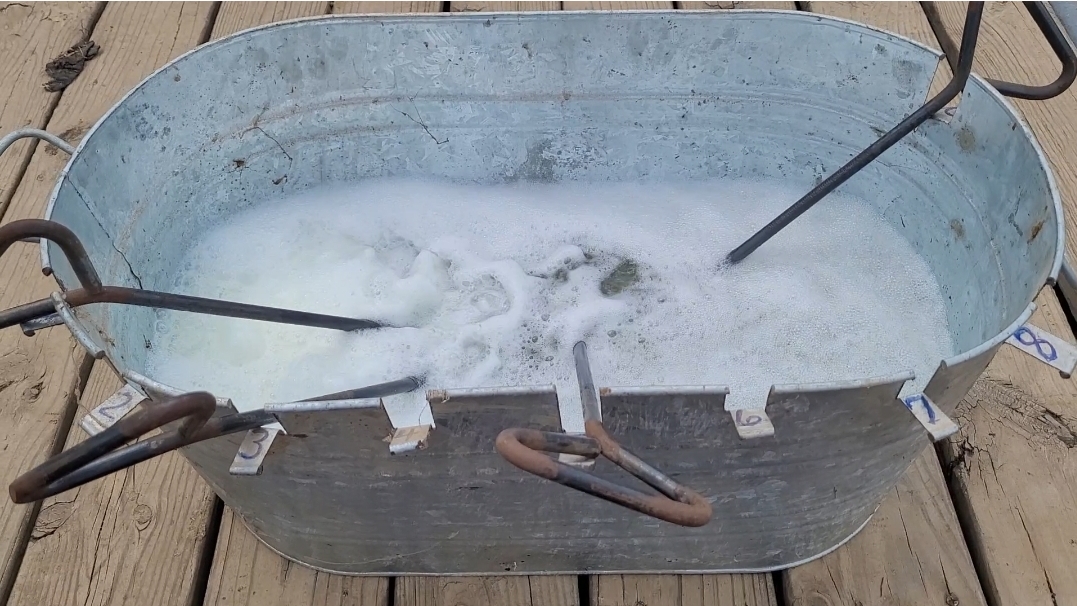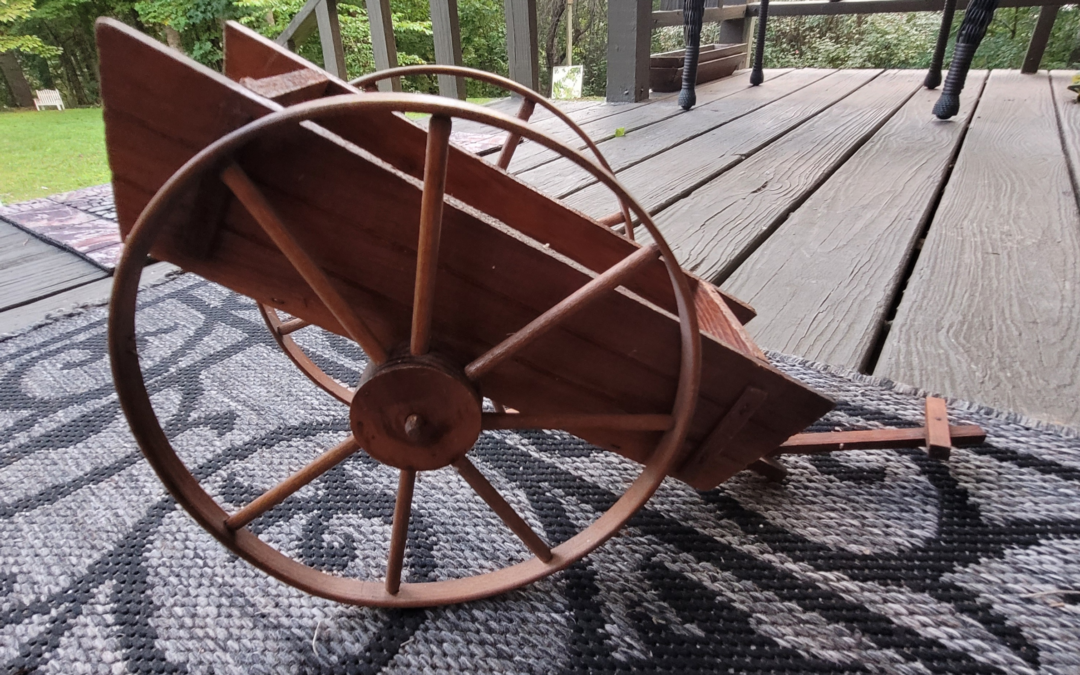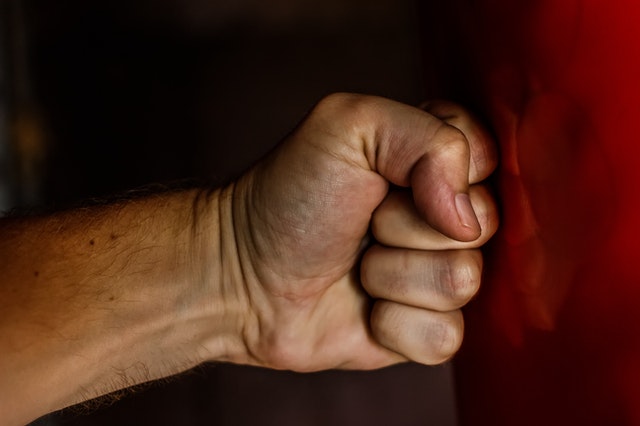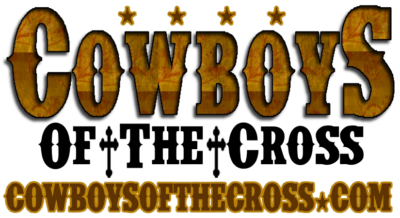
by admin | Oct 21, 2021 | Behind the Bucking Chutes
By Scott Hilgendorff / Cowboys of the Cross
Draw a picture of a horse. Mine will look more like a stick horse unless I have something in front of me to draw from, then it will get a little better. The next person will draw a picture with amazing shading and detail. Another will use unrealistic colors to create their own style. The next will ask, “What kind of horse?” And another will draw the horse and include a barn setting for a background.
Romans 12:4-8 For just as each of us has one body with many members, and these members do not all have the same function, 5 so in Christ we, though many, form one body, and each member belongs to all the others. 6 We have different gifts, according to the grace given to each of us. If your gift is prophesying, then prophesy in accordance with your faith; 7 if it is serving, then serve; if it is teaching, then teach; 8 if it is to encourage, then give encouragement; if it is giving, then give generously; if it is to lead, do it diligently; if it is to show mercy, do it cheerfully.
We all have a couple common tasks that Jesus gave us: to love others and to share the gospel and make disciples.
Through looking at scriptures about what Jesus did in his time here, we can get some idea of how he approached and treated others and we can pull from that just how it is that we’re supposed to carry out those tasks. But we also know that each of us has been given different gifts from God.
Just like how our task to draw a horse will be completed differently, how we love others or how we connect with them or even the methods we use to share the gospel will be different. But the result will be the same. A horse will be drawn. The gospel will be shared. In these few verses from Romans, it’s also made clear we’re to use the gifts we have to the best of our ability. My stick horse might be the best I can do but the horse will still get drawn. I can still take care to draw each line as straight and smoothly as I can.
But Jesus isn’t telling us to draw a horse or do something that doesn’t use skills God has given us. He’s telling us we all have different gifts and gives us examples like showing hospitality or mercy. You may not feel like you’re the best communicator, but you can still explain the gospel to a friend in the best way you know how to share it. A person whose gift is teaching may have an easier time of explaining the gospel to someone but it may be the kindness you show through your gift of hospitality that may be what God uses to make it easier for that person to really listen to the gospel message.

by admin | Sep 23, 2021 | Behind the Bucking Chutes
By Scott Hilgendorff / Cowboys of the Cross
Next to me was a metal tub roiling with a mixture of gasoline and dry ice. Set inside were several numerical brands being super-cooled for the process of cold branding bulls. The process causes their hair to fall out and then grow back with the pigment forever changed to white.
It’s thought to be a less painful form of branding verses hot branding that scars the hide to make the brand.
I was waiting for everyone to gather together for a cowboy church message as the tub was boiling away and it got me thinking about the guys that actually will shape a coat hanger into a brand, heat it in a campfire and brand themselves.
While it’s not an extremely common practice, it’s certainly tied most closely to the cowboy and rodeo communities and it becomes a pretty clear way to show to the world around you that you’re a cowboy.
When we become Christians, followers of Christ whose lives are changed by a saving faith in Jesus, we’re permanently changed by that experience the way the bulls’ hair was going to be permanently changed by that cold branding.
But there’s no outward mark on our bodies that shows we have been changed and while a brand shows what cattleman a herd belongs to, there’s no outward physical change that shows we now belong to Jesus.
John 10:28 I give them eternal life, and they will never perish, and no one will snatch them out of my hand.
In this chapter of John, Jesus is describing us as sheep belonging to him and that no one can take us from him. We belong to him.
There is no need for us to be marked for Jesus to have to prove to anyone that we are his and that no one can take away the eternity Jesus bought for us with his death on the cross.
But, we still can’t help but outwardly show in other ways that we belong to Jesus. The Bible refers to that is fruit—the words and actions we carry out because of how much our salvation means to us and is changing us.
Matthew 7:16-18 By their fruit you will recognize them. Do people pick grapes from thornbushes, or figs from thistles? 17 Likewise, every good tree bears good fruit, but a bad tree bears bad fruit. 18 A good tree cannot bear bad fruit, and a bad tree cannot bear good fruit.
Jesus is warning here against false teachers, letting us know that we can tell who they are but the fruit they produce. Bad will come about from a false teacher but those who belong to Jesus are going to produce good fruit. Sure, Jesus may not have put a brand on our arm to show we belong to him but we won’t be able to hide it either through our words and actions, especially if we carry out his commands to tell others about him and to love others the way he loves us.

by admin | Sep 9, 2021 | Behind the Bucking Chutes
By Scott Hilgendorff / Cowboys of the Cross
It can become hard to serve others when your services makes them feel like they have to return the favor. The best advice I ever received about being able to serve others in our culture is to actually ask them to serve you first.
It sounds like it goes against what the Bible teaches but here’s what happens: if I’m the new guy in the neighborhood and I try to do something for my neighbors as a way to serve them and get to know them, we unintentionally put them in the position of needing to return the favor; they owe us.
Buuuuut, if you ask THEM to help YOU first, you are now in the position of owing them a favor and unless they are just horribly unfriendly people, most are going to be willing to help you when you ask. You still get to know them, a relationship with the neighbor can start and it will be easier to serve them when opportunities arise.
My friends that explained this to me had this happen with a new family that moved in the neighborhood. I don’t remember the details but they had an opportunity to just jump in and help the family with something fairly significant but after that, found the couple was avoiding them. It wasn’t until my friends tried asking them for help that they all then started talking freely across the street and my friends realized they were being avoided because the couple felt they were in debt for the help and felt awkward.
I’m still the new person on the mountain and have a handful of neighbors where I live near Gatlinburg. One of the couples are descendants of the original family that settled the mountain and eventually sold portions of it that have become a handful of homes and rental cabins that make up our little mountain neighborhood.
When I first got up there, I did a terrible job of meeting more than the closest neighbor who sits a bit behind and above me on the ridge we share.
For awhile, we were mostly just “hey neighbors” or “wave as you go by neighbors” so for the ones I waved “hey” to the most, I decided to bake some cookies as we got close to Christmas two years ago. It’s the only time I do something like that, making shortbread like my mom had made when I was little. I had put plates of them in three neighbor’s mailboxes with Christmas cards and a note with my contact information to sort of introduce myself.
One never said anything, another put a bunch of candy canes back in mine and another didn’t find theirs until a bear had knocked the mail box over that next summer because I put them in a long-since gone relative’s box by mistake. I got a panicked voicemail from the neighbor feeling terrible that they had never acknowledged the gift, not even knowing what it was that the bear had eaten. She apologized repeatedly when I called her back because she felt terrible and I ended up feeling terrible because it had made her feel like she was in an awkward spot.
So I tried the advice I had overlooked the first time around by dropping off cookies. With the neighbor closest to me I had an extended road trip that was taking me away for more than a few weeks and I was able to meet him by actually going over to ask him if I could get him to cut my lawn once while I was away. I offered to pay but he refused.
Perfect. I now owed him.
We have visited multiple times now since then and I’ve been able to help him pile wood with no sense of obligation anymore. We now are both comfortable asking for help if we need it.
But there was still that problem with the original mountain family. That wonderful old-timey culture is deeply rooted. The phone call about the Christmas card found months later at least opened the door for me to drop in the next time I saw them outside. Caught unprepared, the wife excused herself, went inside and came out with a jar of apple butter she had made back in the fall. I had created this need for her to give back. So after a trip home to visit family in Ontario, I came the next time with a box of cookies you can only get in Canada. Because I had expressed interest in it during our conversation, I left with the moon-phase guide to planting a garden they kept on their refrigerator. Next time, having learned she couldn’t eat much sugar, I came with some chips in a style you can only get in Canada and left with a wooden wagon planter from her porch.
Finally, a couple weeks ago, I was getting ready for another trip to Ohio and Ontario when my covid test for the border crossing came back inconclusive and I was going to have to go to town again to take another test. At the same time, my lawn tractor backfired and died on me right as the husband was driving by on his own to cut the lawns on the two rental cabins down from me. I really did need some help and was able to approach him to ask if he had enough gas and time to keep cutting one more while I ran back to town for the second test.
He wouldn’t accept offer of payment and also said he’d help figure out what was wrong with the mower when I get back.
My hope is that by finding myself in real need of help, this has broken the cycle of gift-giving and opened the door to where they won’t mind asking me for help or that I can pitch in when I see a need without having to be given something off their porch.
Philippians 2:3-4 Do nothing out of selfish ambition or vain conceit. Rather, in humility value others above yourselves, 4 not looking to your own interests but each of you to the interests of the others.
The idea of asking for help instead of offering it seems contrary to scripture except it can be an effective way to build a bridge that opens the door to more easily serve those neighbors and develop a closer relationship that allows the gospel to be shared.
Rodeo and bull riding give us all a great opportunity to ask for help and I think in that environment, it’s easier for us to do it either way. If we need help, we’re going to ask for it and if we see someone who needs help, most of us are pretty good at stepping up and helping without being asked. It’s just a natural way of doing things so it doesn’t create that sense of obligation.
But what are some ways we can either serve or ask to be helped in order to build connections with others around us outside the sport? We help others so we can show Jesus to them but however we do it, we need to build connections so we can also tell them who Jesus is and what he did for them.

by admin | Apr 29, 2021 | Behind the Bucking Chutes
By Scott Hilgendorff / Cowboys of the Cross
The past year, on top of the personal struggles we face, we were all dealing with struggles that the pandemic brought from lock downs to canceled rodeos and horse shows.
Lost work, lost business, lost time with family gave us a lot to feel angry about.
And everyone knows it.
Whether it be on social media or face-to-mask conversations, we all have had a lot to say about how we feel and very little of it has been positive or encouraging. In the rodeo and bull riding industries, we continually talk about mindset and keeping positive attitudes. We rarely talk about that from a faith perspective.
The apostle Paul does in many ways in several of his letters. In Philippians, his letter to the church at Philippi, Paul writes many encouraging passages about being cheerful and Christ-like in our mindset and responses to our situations including one encouragement about our attitude when life might be rough.
Philippians 2: 14-16 Do all things without grumbling or questioning, that you may be blameless and innocent, children of God without blemish in the midst of a crooked and twisted generation, among whom you shine as lights in the world,
When we have a saving faith in Jesus, we are given what’s known as the Great Commission to respond to at the end of the Book of Matthew. The commission commands us to tell others about Jesus and the salvation he brings and then to make disciples—teach others how to follow Christ.
That means being out there in an unbelieving world that generally rejects the messages of Jesus or sees him as no more than a positive teacher back in his day.
But if we are to convince others that Jesus was the Son of God who died in place of our sins that through belief and repentance of our sins, we can be saved from the punishment meant for our sins, it’s going to be a lot harder if they can’t see signs of Jesus in us.
The amount of complaining and fighting many of us have done over the past year would make it hard for others to see us as different than them. If our lives have been changed by a saving faith in Jesus, there are times when our actions or responses should surprise people by how different they are from everyone else.
Paul wanted the Christians in Philippi to be seen as ‘children of God’ that stood out among the evil that was around them and showed the light of Christ.
As Christians, we’re called to be like Christ, but we understand we’ll never truly be as perfect as him. We’re going to make mistakes. Admitting them to an unbelieving world and telling them that as Christians, we meant to do different is one step toward repairing any damage from our words or actions. Moving forward by ending our grumbling and taking a more joyful or kind approach to our situations can begin to show others that Christ lives inside of us.

by admin | Mar 18, 2021 | Behind the Bucking Chutes
By Scott Hilgendorff / Cowboys of the Cross
Last year, I jokingly posted to social media an online order for a cattle prod. I don’t have cattle. It was a tool I wanted to carry with me to keep people the full six feet away from me that we were learning was part of the guidelines for dealing with the pandemic we were just beginning to face.
But all of Scripture isn’t about keeping people at a distance, it’s about God wanting us to be with Him, free from His judgment of our sin.
James 4: 7-10 Submit yourselves, then, to God. Resist the devil, and he will flee from you. 8 Come near to God and he will come near to you. Wash your hands, you sinners, and purify your hearts, you double-minded. 9 Grieve, mourn and wail. Change your laughter to mourning and your joy to gloom. 10 Humble yourselves before the Lord, and he will lift you up.
James gives us just one of several direct references in the Bible of God wanting us to draw near to Him. Here, he is stressing the importance of turning from sin and repenting, first by telling us to submit to God, fight the devil and the temptation of sin and to turn to God instead.
James tells us if we move toward God, God will come toward us but stresses we approach God with a heart purified of sin.
Regardless of how people have felt about the pandemic and how it has been handled across the country and around the world, we’ve spent the past year either fighting against being kept apart from each other in our communities and churches or we’ve been willingly staying apart in effort to protect people we care about like vulnerable grandparents. Either way, it’s been difficult and challenging for Christians who understand we’re meant to be in community together just like we’re meant to be close to God.
We’ve been dealing with a lot of situations that have felt contradictory to what we believe.
And James gives us another seemingly contradictory statement in verse nine.
Here, he tells us something that sounds like it’s contradictory. We know through other books of the Bible and through our own experiences that our salvation brings about joy, understanding that when we have a saving faith in Jesus, we have gained a perfect eternity in Heaven. Fruit of the Spirit is something that forms in us when our salvation is real and one of those fruits is joy. Yet James is telling us to grieve and move from joy to gloom.
But what James is telling us in this single verse is just how serious our repentance of sin should be.
Our sin separates us from God and He will judge and condemn it. But He sent Jesus to briefly live among us, close to us, fully God and fully man. While his disciples didn’t understand it at the time, Jesus was here to die and take the full punishment that was meant for them and all of us. Through his sacrifice, we could be restored to a right relationship with God. Through believing Jesus was the son of God, died for our sins and was resurrected, we must repent of our sin and ask to be forgiven. When our faith and repentance is real, we’re given a perfect, eternal life in Heaven instead of eternal punishment in hell.
James wants us to grieve our sin that has kept us separated from God. He wants us to be humble before God but with the understanding God will come close to us—close enough to ‘lift us up.’
How wonderful is that to worship God who despite all our mistakes and failings, wants to be that close to us?






Recent Comments